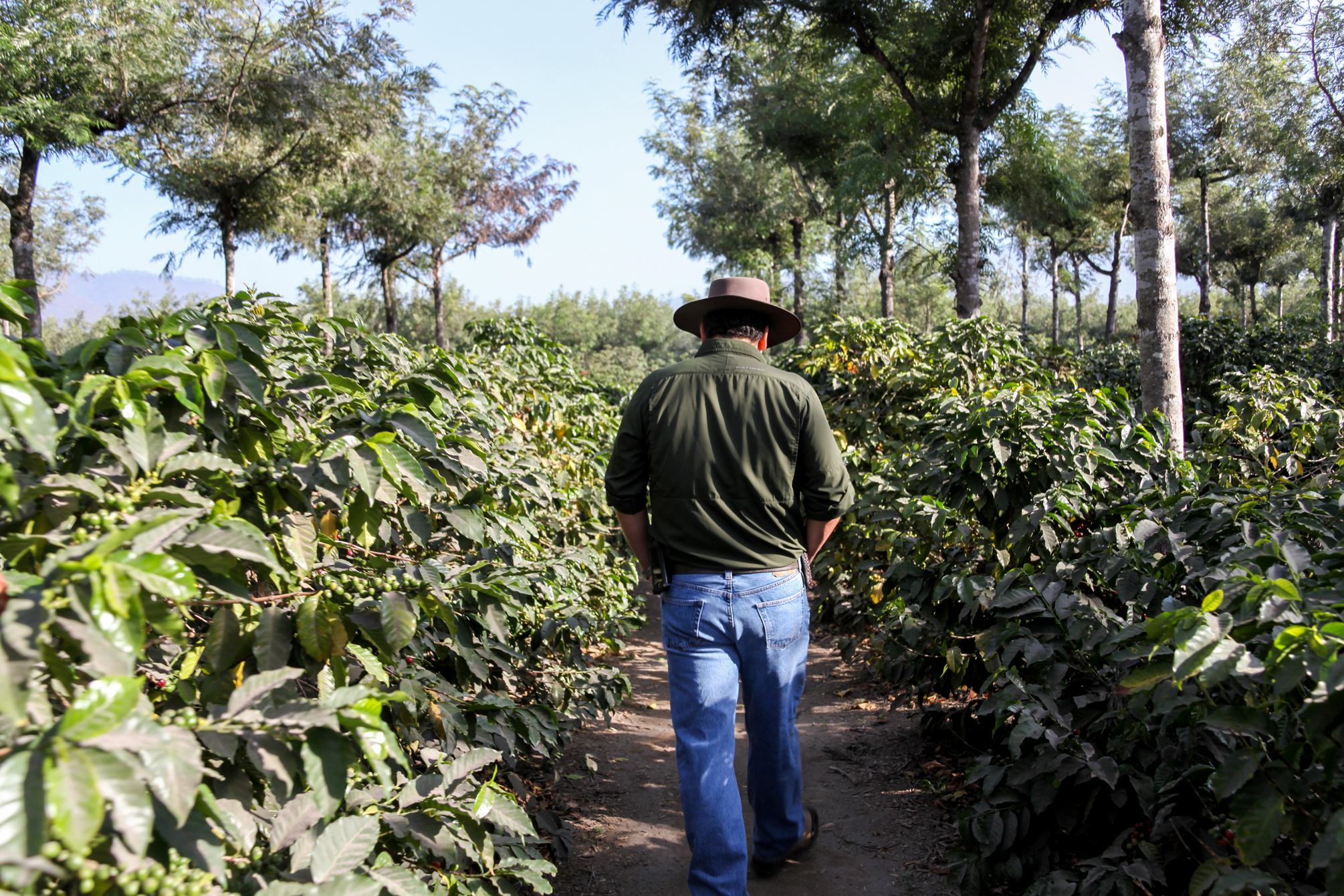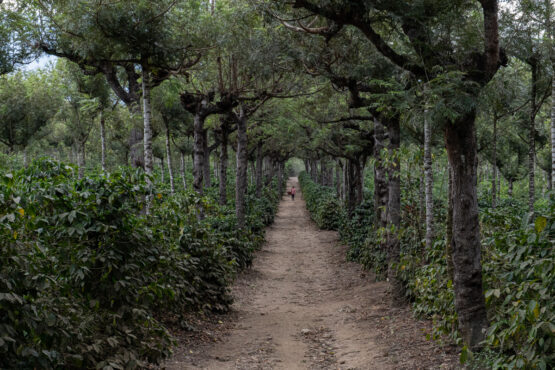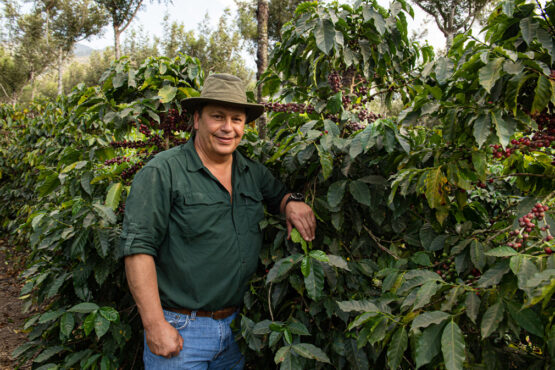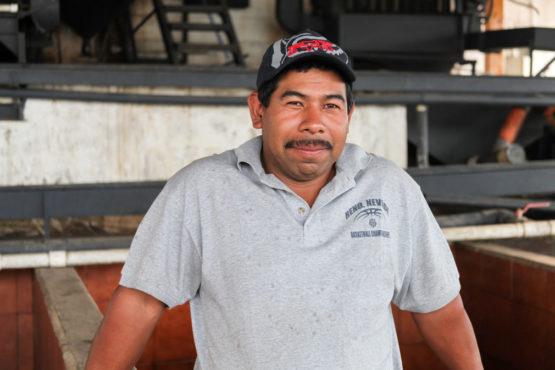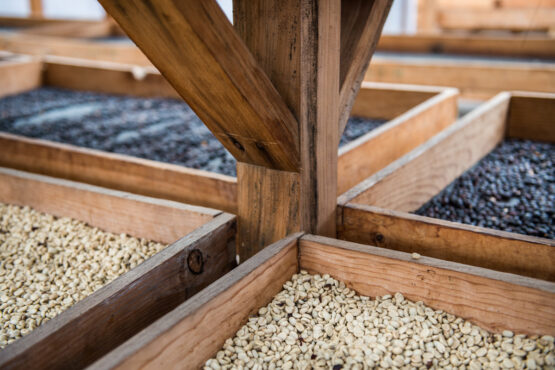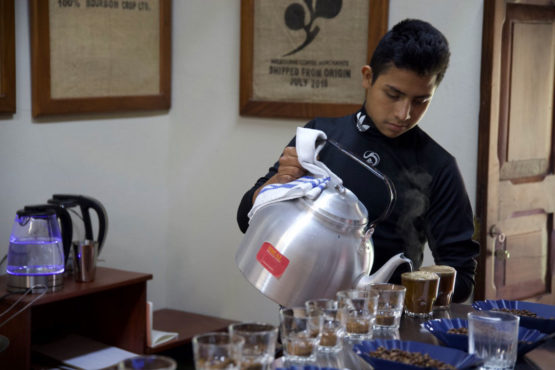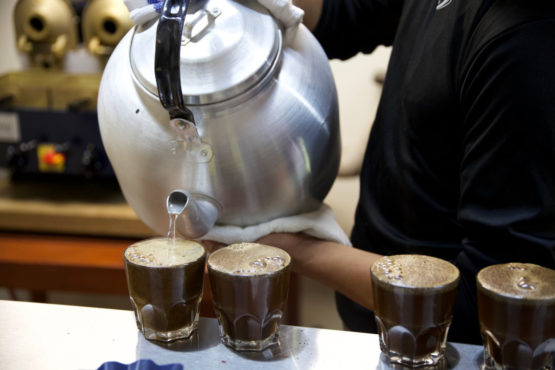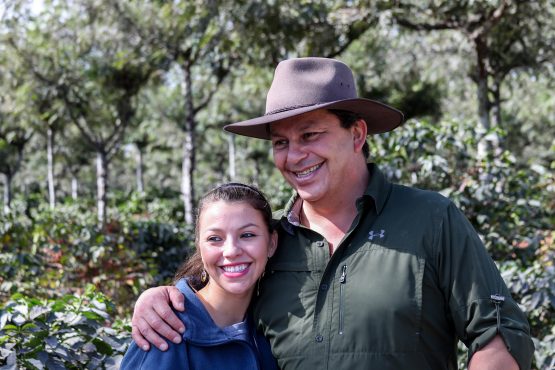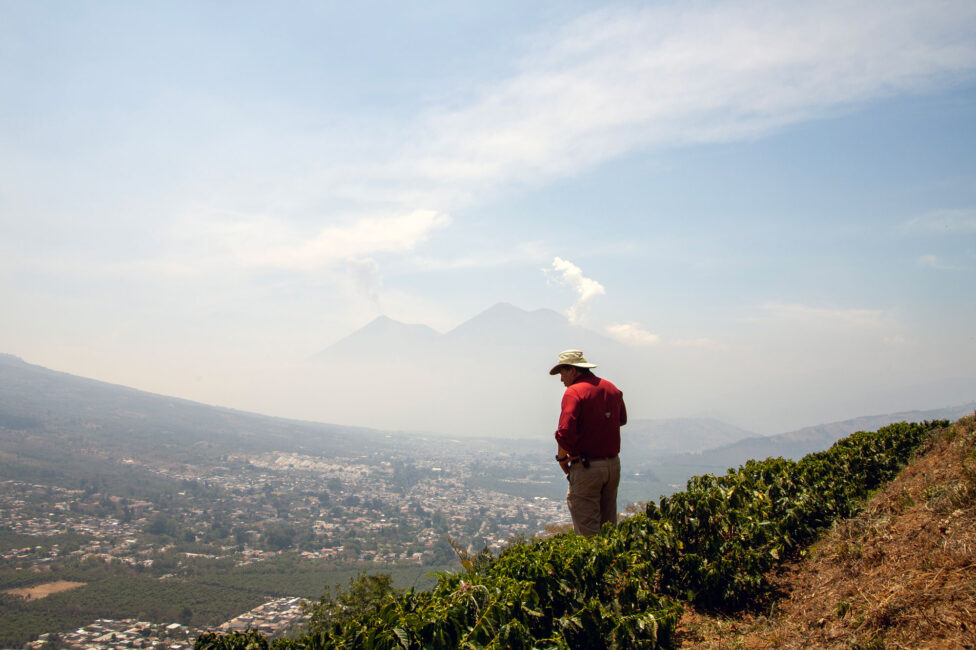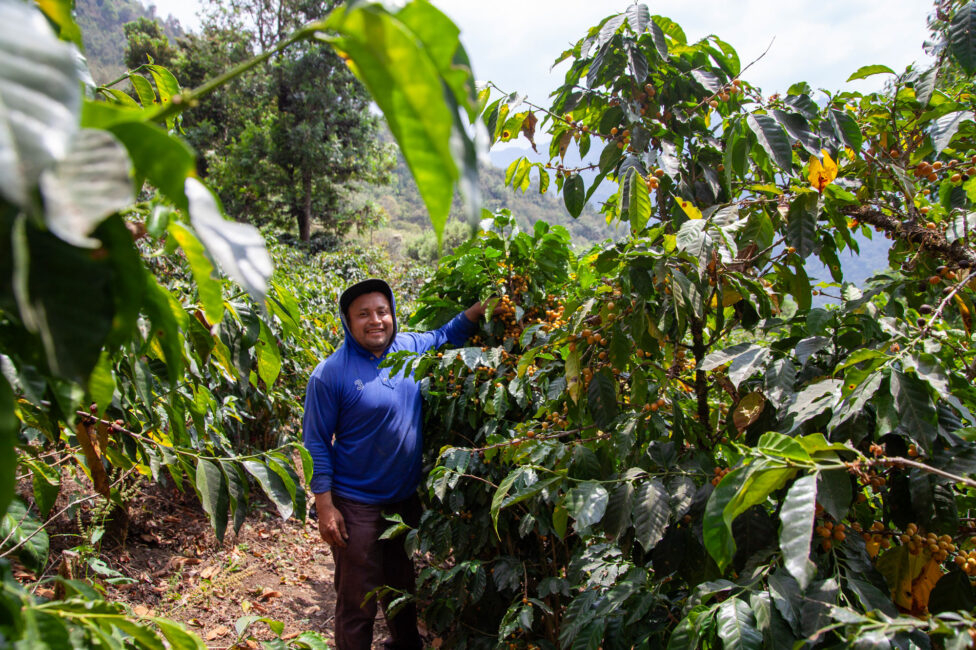Puerta Verde Java
Complex and distinct. Delicate jasmine and lemon myrtle florals, with white nectarine, honeydew and pineapple and a balanced finish.
Puerta Verde sits at 1,520 metres above sea level near Ciudad Vieja, Sacatapequez in Antigua, Guatemala. The farm’s name, ‘Green door’ derives from its unique position in the magical Panchoy valley, home to rich volcanic soil, plentiful water and (accordingly) some of the best coffee grown in the area.
Puerta Verde has been owned and managed since 1999 by Ricardo Zelaya. Ricardo is a meticulous and incredibly professional farmer who is focused on producing the very best coffee he can. He manages four coffee farms in Antigua; Santa Clara, Puerta Verde, San Agustin and Jauja and also owns and manages a farm called Carrizal in New Oriente. His farms are scrupulously well-managed—from the careful selection of varietals planted and attention given to plant nutrition and pruning, to the management and close supervision of the wet and dry mills – which are located on the estate and owned by Ricardo, giving him complete control over quality from picking through to export.
Ricardo is passionate about sustainability. Coffee on his farms is shade-grown, which protects the plants from direct sunlight, maintains soil health, and provides an important habitat for birds and insect life. The family’s mills are also eco-friendly and feature sedimentation tanks that prevent pollution of the local river systems. All of the pulp from the mills is composted and used as an organic fertiliser for the farm. In addition, parchment from the dry mill is used for fuel to reduce the reliance on wood.
Ricardo also has a big heart – leading with passion, care, positivity and a sense of humour. He has a loyal and dedicated team, and many of his staff have worked on the farm and with the family for generations. One of his longest-standing staff members is the Farm Administrator, Marcos Rompiche, who has worked for the Zelayas for over two decades and is the third generation in his family to work the land. Production is overseen by Israel Yool, who has over fifteen years experience working for the family and is the second generation to do so. Including Marcos and Israel, the farm provides work for sixty permanent employees year-round, all of whom help Ricardo manage the processing and production of his farms. The family hires an additional 250–400 individuals during the harvest to help pick and process the coffee.
Ricardo recognises that his people are his most valuable asset “80% of the cost of coffee is labour—you need to depend on a lot of people. I think that if your people are earning a good salary, if they have good conditions and if they’re happy, then they’ll do a better job, and with more will.”
PROCESSING
The harvest at Puerta Verde runs from December to April. Under Ricardo’s watchful eye, coffee cherries are picked by hand using his skilled picking team who are trained to only select the very ripest cherries. During the harvest, Ricardo instructs at least 5 passes through the farm and puts the pickers in rows to ensure that everything is being done as methodically as possible. Coffee cherries are delivered to the wet mill (located at Santa Clara, which Ricardo also owns) and pulped immediately.
At the mill, the fruit is pulped and fermented for 14–22 hours in tiled tanks. The beans are then washed to remove any remaining pulp and carefully dried on the patio and then on raised beds, with a greenhouse-style enclosed canopy, which features walls that can be lifted up and down to maximise airflow and control temperature and humidity. This method of drying allows Ricardo more control over the process, enabling him to ensure the coffee is dried slowly and evenly. Once dry, the coffee is rested in parchment until it is ready for export. It is then milled at Ricardo’s dry mill which is located on the farm. The management of this meticulously run mill is overseen by a talented team who carefully monitor every stage of milling to ensure high-quality expectations are met. Throughout the process, Ricardo also ensures that all organic by-products are recycled and reused.
Ricardo recently built a dedicated lab located on his property and has a QC team focused on analysing every single lot produced on the farm. Balmer Aragón heads up the QC program and is in charge of all of the roasting and cupping. Each day lot is cupped and scored prior to blending and the findings are used to inform improvements in harvesting and processing.
SOCIAL INITIATIVES
In recent years, Ricardo and his daughters, Bel and Katia, have implemented several social initiatives to benefit all their employees, with the objective of supporting them and their families to improve quality of life, and gain higher job satisfaction.
Some initiatives have focused on health, with workshops for employees on basic hygiene and education around the importance of drinking filtered water. On the back of this, the Zelayas created an eco-filter finance program, where a worker would pay for half of the filter and the farm would pay out the other half.
Another initiative focused on female empowerment. All female employees or family members were welcomed to workshops where they learnt new skills like sewing, cooking, traditional candy making and jewellery making. These skills provided the women with the opportunity to create an important source of income in the coffee off-season, and also helped to build a sense of community and purpose.
There are also some long-term initiatives focused on education that have been implemented, including the Santa Clara Scholarship Fund which has been running since 2011. This fund provides financial support for some of the children of the farm’s employees. Many children in Guatemala are forced to stop going to school early because the school fees, and associated costs like school uniforms, are not affordable for their families. Currently, there are thirty student recipients of the Santa Clara Scholarship fund. These students receive money for tuition fees, uniforms and schoolbooks, as well as the opportunity to participate in weekly workshops that focus on important educational and leadership skills.
In addition, Ricardo set up a ‘Coffee High School’ in 2019, for people interested in pursuing a career in coffee. The two-year course (which is run on the weekends so students can maintain their full-time jobs) required students to have completed studies up to the equivalent of Year 10 in Australia, however, there is no age limit for the students. Topics covered in the course cover everything from pruning and picking, through to wet and dry processing, and cupping. “This program is aimed at ensuring we are training the next generation of coffee professionals,” Ricardo explained.
WHY WE LOVE IT
Whilst most of the plantation at Puerta Verde is planted out with Caturra and Bourbon varieties, a small plot is dedicated to exotic varieties including this Java. We only got 450kg of this 100% Java micro-lot but fell in love with the distinctive floral aroma and complex cup profile. We hope you enjoy it!
